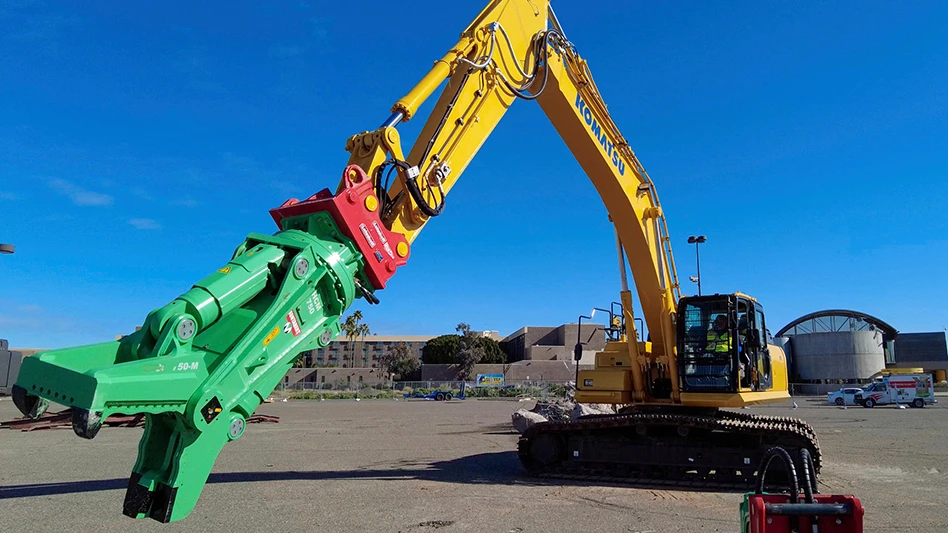
Lendlease, Rubicon Technologies Inc., Mycocycl and Rockwood Sustainable Solutions have completed a pilot involving used asphalt shingles, mushrooms and mycoremediation technology to reduce construction and demolition waste.
According to the Environmental Protection Agency, 11 to 13 million tons of asphalt shingles end up in landfills annually, where they take upward of 300 years to break down. The idea for the pilot came after seeing the large percentage of waste that was generated by used asphalt roofing shingles from a recent reroofing project at their Fort Campbell Army installation in Kentucky.
Lendlease, a real estate and investment group based in Sydney, Australia; Rubicon, a waste and recycling technology company based in Lexington, Kentucky; Mycocycle and Rockwood Sustainable Solutions proposed a solution to reuse the material in a new capacity.
“Every asphalt shingle from those 214 homes would have gone to a landfill,” says Sara Neff, head of sustainability at Lendlease Americas. “There was simply no viable use for them. We understand the importance of reducing our Scope 3 carbon by diverting waste streams from landfills. After teaming up with Rubicon, Mycocycle and Rockwood Sustainable Solutions, we came up with an innovative idea using mycoremediation technology; combining mushrooms and shingles to break down waste materials and create a new byproduct that could ideally be reintroduced for reuse, furthering a circular economy.”
Shingle samples were gathered and transported to recycler Rockwood Sustainable Solutions’ facility in Lebanon, Tennessee. There, Mycocycle, an environmental remediation company that uses fungi to decarbonize waste streams, mixed samples with three strains of fungi, a process called mycoremediation.
“Using mycoremediation to process waste to be further recycled and form part of the circular economy is its highest use,” says Joanne Rodriguez, founder and CEO of Mycocycle. “Our mycelium recycling pilots continue to see excellent results among a wide range of materials and I’m excited to see where our work, in partnership with Lendlease, Rubicon, and Rockwood Sustainable Solutions, takes us.”
Neff adds this partnership has the potential to be a template for the future. Taking a product that is no longer viable and combining it with a natural renewable source that results in a new product is a phenomenal outcome that is beneficial to the environment and bolsters the economy.
Alexandra Ewing of Lendlease, Chris Batterson of Rubicon, Lincoln Young of Rockwood Sustainable Solutions, and Joanne Rodriguez of Mycocycle will be hosting a session on the results of this project, titled “Forging a Truly Circular Economy for Toxic C&D Materials,” at the Greenbuild International Conference and Expo in November at the Moscone Center in San Francisco.
Additionally, the team is looking to manufacturers across the building industry and encouraging them to continue to focus on the impact these new materials can have on reducing emissions while making the supply chain more sustainable.
“The successful completion of this pilot is a fantastic example of environmental innovation in action,” says Nate Morris, chairman and CEO of Rubicon. “Rubicon’s mission is to end waste, and it is innovations such as these that find second-life circular solutions for hard-to-recycle materials."
Get curated news on YOUR industry.
Enter your email to receive our newsletters.Latest from Construction & Demolition Recycling
- Cielo investor requests annual meeting
- CDE sets up washing plant on Long Island, NY
- NWRA: NIOSH cuts a step in the wrong direction
- Ferrous price hikes could be poised to pause
- Northstar secures 15-year lease extension for asphalt shingle recycling facility
- Greenwave asks for SEC filing extension
- Construction Plastics Initiative lines up projects
- ShearCore adds dealership group in Canada






